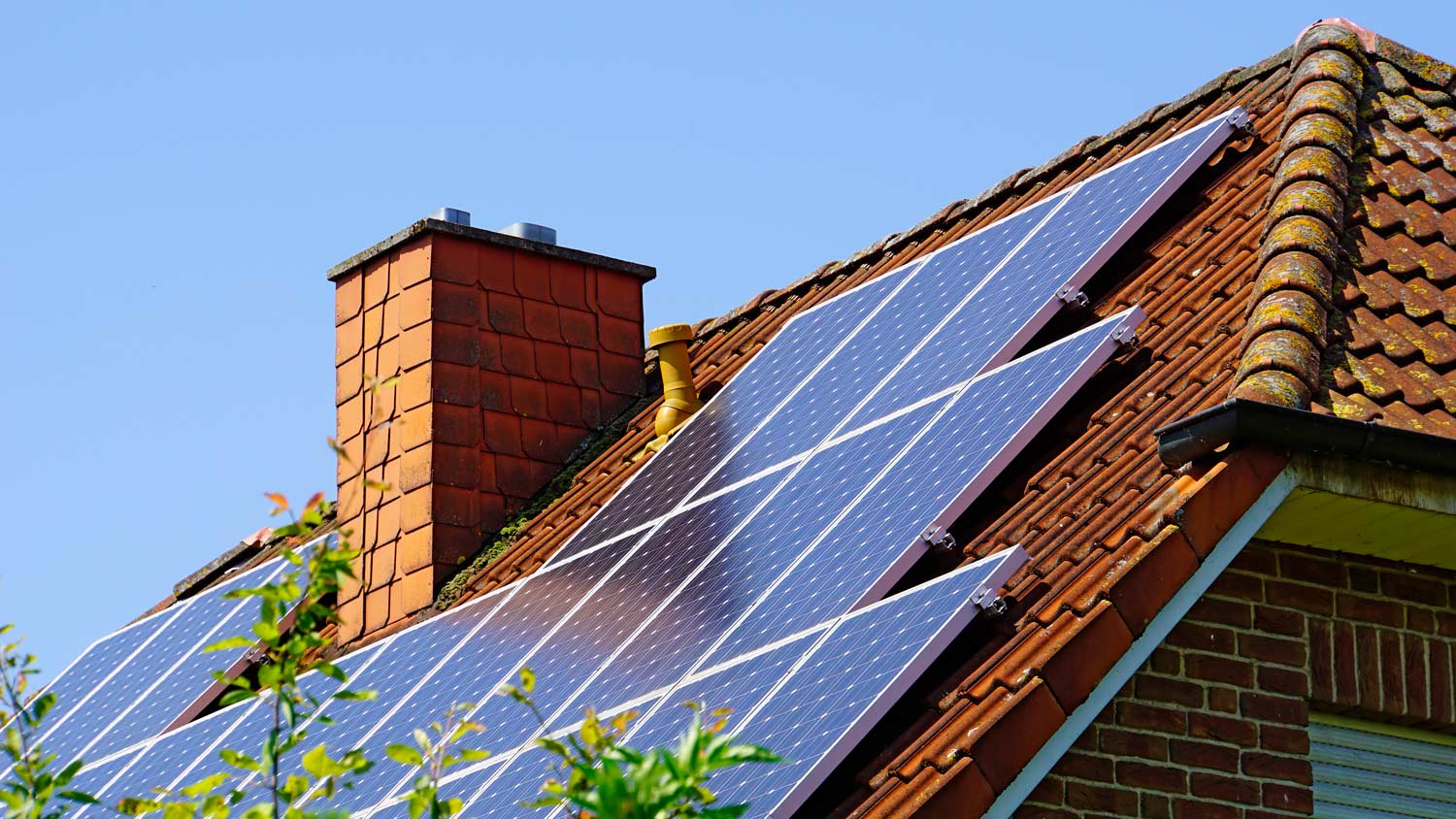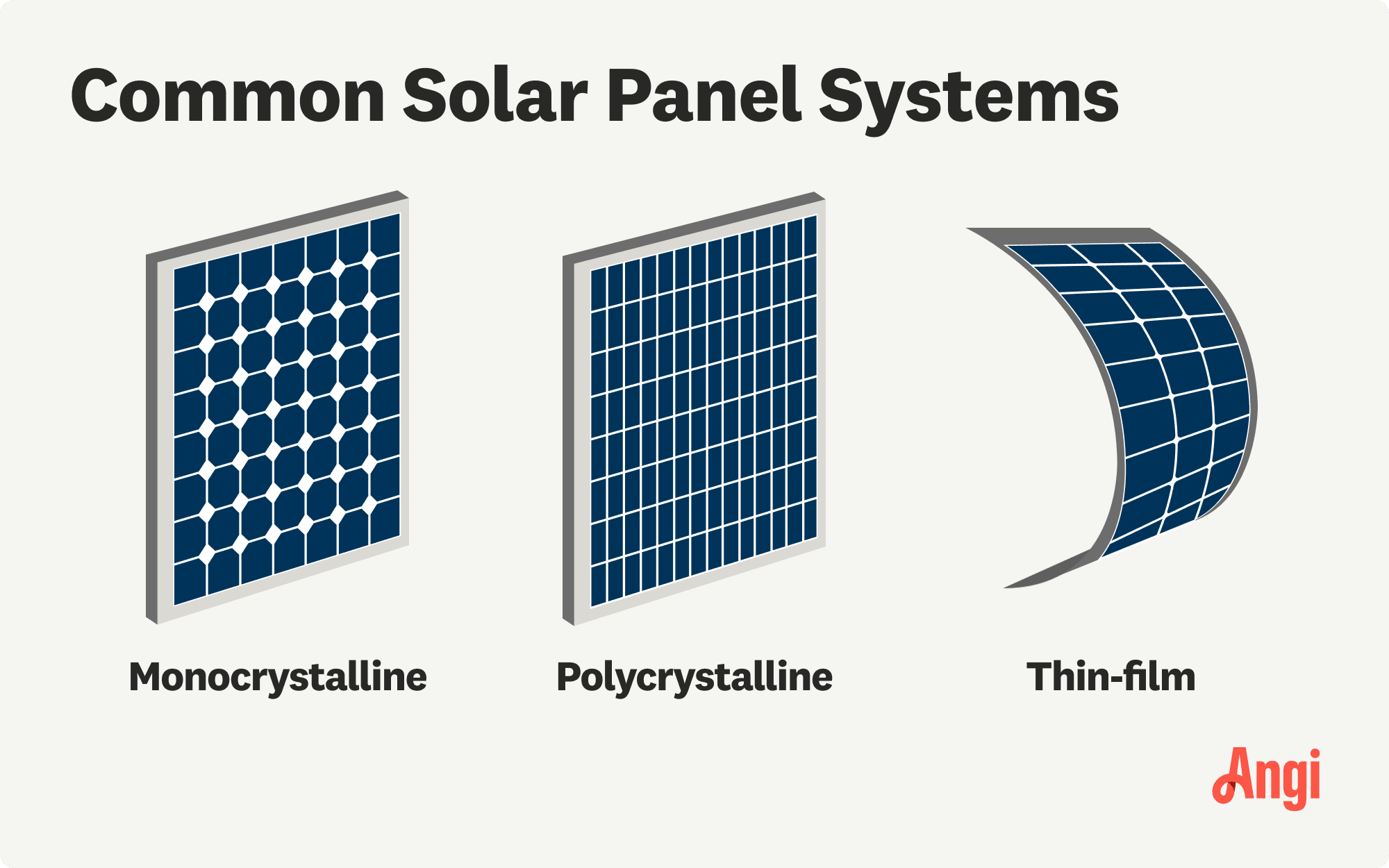
Solar battery costs depend on the size of your system, labor, and capacity. Learn how much you could pay for batteries for home solar systems.
Installing solar panels in St. Louis, Missouri, averages $27,097, though it ranges between $19,142 and $36,378 based on system size, panel type, wattage, and more. A solar panel installer can assess your roof and install your system.


The Gateway City averages over 200 sunny days per year, outperforming many coastal cities for solar potential.
St. Louis experiences all four seasons, and solar helps offset those year-round energy costs.
The mix of historic and modern homes in St. Louis means there are diverse rooftop opportunities and challenges for solar installation.
Local net metering programs in St. Louis provide competitive rates for selling excess solar power back to the grid.
It’s the Gateway City, and St. Louis, Missouri, is opening its doors to solar energy in a big way. Homeowners can expect to pay between $19,142 and $36,378 for solar panel installation costs in St. Louis, with an average cost of $27,097. With electricity rates climbing, solar offers a smart path to energy savings and independence. Here's everything you need to know about solar costs in St. Louis and what influences your bottom line.
Neighborhoods in the St. Louis area are as varied as they come—from historic brick homes to modern builds, each property has different needs. A solar panel installer in St. Louis, Missouri, can evaluate your home and give you an accurate bid for your system.
The size of the solar system will impact your solar panel installation costs. The larger the output, the more you’ll pay. Most homes need 6- to 10-kW (kilowatt) systems, which work out to anywhere from 15 to 34 panels, depending on the wattage.
The table below shows average costs based on the size of your solar system:
| System Size (kW) | Number of Solar Panels | Average Cost |
|---|---|---|
| 4 | 10–12 | $10,560–$12,160 |
| 6 | 15–18 | $15,840–$18,240 |
| 8 | 20–24 | $21,120–$24,320 |
| 10 | 25–30 | $26,400–$30,400 |

When choosing the type of solar panel that works best for your home, consider three main factors: efficiency, life expectancy, and design. Here’s how the type of solar panel can affect your cost:
| Type of Solar Panel | Average Cost per Watt | Efficiency Rate (%) | Pros | Cons |
|---|---|---|---|---|
| Monocrystalline | $1.10–$1.40 | 18–22 | High efficiency, durable for varied weather | Higher up-front cost |
| Polycrystalline | $0.80–$1.10 | 15–17 | Budget-friendly, mid-range price | Less efficient, needs more roof area |
| Thin film | $0.60–$0.95 | 10–12 | Works well in partial shade | Requires the most roof space |
On average, most homes need anywhere from 20 to 25 panels to fully power a home, but this can range from as few as 15 to as many as 34. How many solar panels you need depends on the number of watts per panel, your energy consumption, and the efficiency of your panels. Your average solar panel will have an output of anywhere from 250 to 400 watts. The dimensions of your solar panels will also depend on the power output.
Scorching and humid summers, icy winters, and spring storms mean your solar panel installation needs equipment that’s engineered to handle the weather and keep your panels solidly on your roof.
The more advanced the technology, the higher the up-front cost. The type of mount will affect the cost as well:
Fixed mounts: $18–$30 per mount
Standard roof mounts: $145–$290 per panel
Ground mounts: $485–$970 per panel
Adjustable mounts: $75–$100 per mount
Tracking: $760–$3,800 or more per mount (these mounts can self-track sunlight, leading to up to 45% more energy production)
Ballasted systems: $195–$390 per panel (for flat roofs)
Other materials you will need for a solar energy system include the parts in the table below.
| Hardware | Average Cost |
|---|---|
| String inverter | $1,100–$3,225 each |
| Microinverters | $185–$370 each |
| Power optimizer | $95–$185 each |
| Solar battery | $7,400–$18,500 |
| Monitoring system | $278–$740 |
Inverter: Converts direct current (DC) electricity to alternating current (AC) electricity
Microinverters: Convert DC power to AC power at each panel instead of the whole string of panels
Optimizer: Regulates currents so each panel is more energy efficient and prevents power loss.
Battery: Stores excess energy from the system so homeowners can use it at night or during a power outage
Some systems use a single solar inverter or several microinverters that convert DC to AC electricity. Materials like the wiring and battery are often grouped with the package price unless you opt for add-on services.
No matter how handy you are, leave solar panel installation to the pros. Code requirements, permit applications, and manufacturer warranties depend on having a licensed professional do the work.
Budget $0.50 to $0.66 per watt for labor, but remember that this number doesn’t include permits or the cost of additional technology, such as special mounts, tiles, or shingles.
Solar panel installation does require electrical work. Though many solar panel installation companies have a licensed electrician on staff who specializes in solar panels, roofing contractors sometimes subcontract an electrician. The cost of hiring an electrician in St. Louis averages $60 to $135 per hour, with most installations requiring four to eight hours of electrical work.
Depending on your area, you may need to get a building permit and a solar panel inspection before you can unveil your new solar panels. Permits and inspections will add an average of $150 to $525 to the solar panel costs.
Standard residential permits: $150–$380
St. Louis solar installation permits: $200–$475
Electrical permits: $90–$220
Connection to local utilities: $65–$200
Most installers include permit costs in their pricing, and standard permits take about two to four weeks to obtain in the St. Louis area.
Nationally, the return on investment on solar panels is 35%. They’re also a worthwhile investment in St. Louis, where solar systems add measurable value to homes, whether you’re buying, selling, or staying put. Properties with solar can attract more buyer interest, command higher sale prices, and sell faster than comparable homes.
Residents with solar panel systems save money by cutting down on monthly electric bills and earning credits for excess power through Missouri's net metering program. Adding battery storage also provides backup power during severe weather events—a valuable feature for current homeowners and potential buyers.
Once your solar panels are paid off, they're officially your property. If you move, you can reinstall them on a new rooftop. Alternatively, they can increase the value of your home by 3% to 4% and attract more buyers. They can also give your property a competitive edge in a buyers’ market.
The best way to save money on the up-front costs of installing solar panels is to take advantage of the Solar Investment Tax Credit (ITC) before it ends on December 31, 2025. The ITC allows homeowners to claim a federal tax credit equal to 30% of the price of their solar panel system installation.
For example, if your solar panel system costs $30,000 before the federal tax credit, you can save around $9,000. However, to benefit from this credit, your solar system has to be installed and working before the federal incentive ends.
The ITC, also known as the Residential Clean Energy Credit, was originally extended through 2032 as part of the Inflation Reduction Act. However, new federal legislation (the Big Beautiful Bill Act) signed into law on July 4, 2025, terminated the credit early. The Solar Energy Industries Association® (SEIA) outlines the high-level policy changes and restrictions on energy tax credits.
Additionally, the extra power you choose not to store in a battery can be sent back to the grid. Your local utility company will compensate you for that power, but the amount will vary. You can check the Utility Rate Database on Open EI to estimate how much you can expect to receive for generating excess energy.
With so much sunshine lighting up St. Louis and so many state and local incentives, it’s hard not to see the benefits of solar energy.
Net metering: Missouri’s statewide net metering program gives homeowners credit for the excess energy produced by their solar panels.
Property tax exemption: Solar installations are exempt from property tax increases, so your home value will rise after the installation without increasing your tax burden.
Utility company programs: St Louis’ major utilities, including Ameren Missouri and Spire, offer solar interconnection programs with cash-back benefits and other upsides.
Home is the most important place on earth, which is why Angi has helped more than 150 million homeowners transform their houses into homes they adore. To help homeowners with their next project, Angi provides readers with the most accurate cost data and upholds strict editorial standards. We survey real Angi customers about their project costs to develop the pricing data you see, so you can make the best decisions for you and your home. We pair this data with research from reputable sources, including the U.S. Bureau of Labor Statistics, academic journals, market studies, and interviews with industry experts—all to ensure our prices reflect real-world projects.
Want to help us improve our cost data? Send us a recent project quote to [email protected]. Quotes and personal information will not be shared publicly.
From average costs to expert advice, get all the answers you need to get your job done.

Solar battery costs depend on the size of your system, labor, and capacity. Learn how much you could pay for batteries for home solar systems.

Get a detailed estimate of solar farm costs. Learn about average prices, key cost factors, and ways to save when planning your solar farm project.

There are a few factors to consider when it comes to solar panel repair costs. This guide breaks down the prices of solar panel removal, repair, and replacement.

Want to run your solar system without a battery? Here are the pros and cons, as well as what you need to know about how to use a solar panel directly without batteries.

Does homeowners insurance cover solar panels? Find out what’s covered, how to add extra protection, whether you need to insure leased panels, and more.

Avoid underpowered solar batteries and wasted money. From daily energy use to depth of discharge, this guide explains how to size a battery for solar panels.